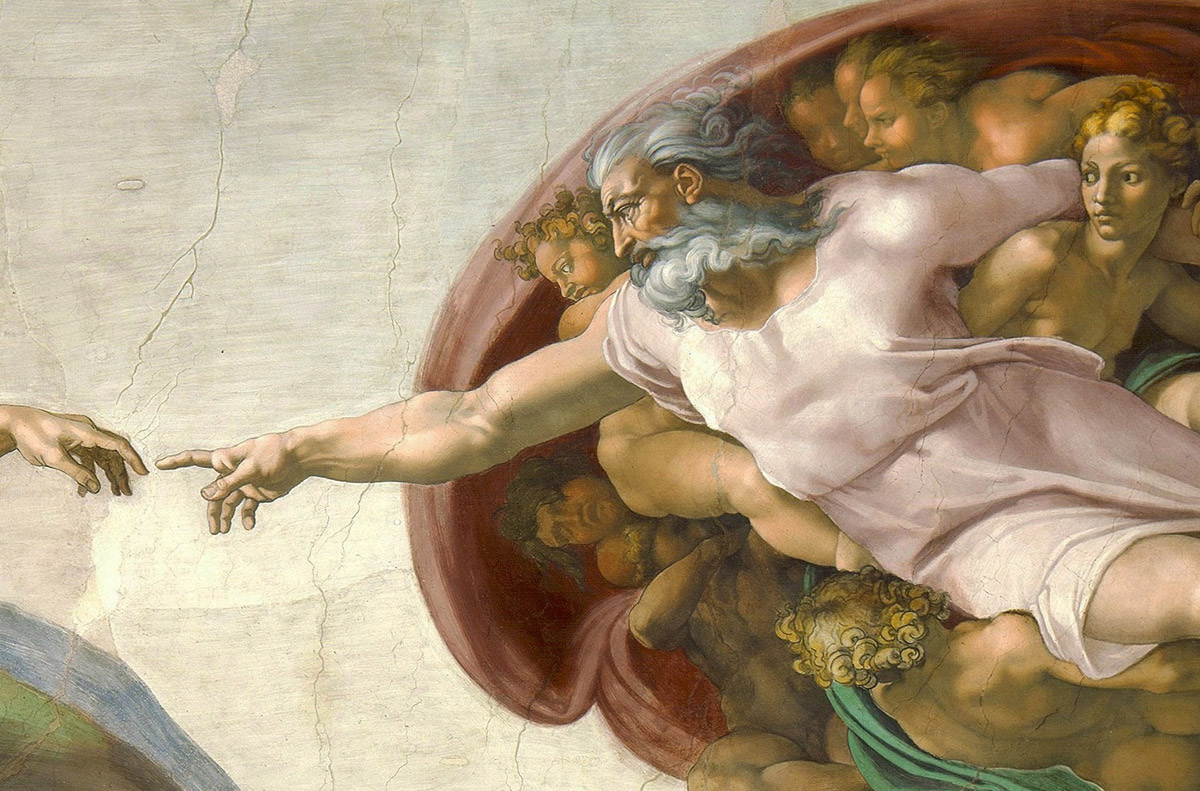As certain scientific truths have come to light, many older forms of religious expression seem no longer tenable. But, rather than lead to an increasingly secular milieu, these insights of science can clearly lead to a deepening of human spirituality.
Through a series of complex selection, this billions-of-years-old, expanding universe has evolved our human organisms to be vehicles in which it can achieve awareness. While the sentient experience certainly exists in variant degrees in other species, there is a qualitative difference in the ability of homo Sapiens to engage in, and act out of, reflective consciousness. It seems likely, this has occurred in other places in the universe, perhaps to an even greater degree, but as of yet, we know nothing of that. We only know the role we have been cast in.
To be this fulcrum, this sentient, cognitive psyche-center, in which the universe can become conscious of itself. What an august privilege, to have been given this role, and what an Atlas-like responsibility it puts on our shoulders. To maintain an appreciation of our ability to sense and reflect. Wanting to see, to hear, clearly–without blemish, without deceit. Wanting to speak words that are true. And translating this underlying sense of the whole in the simplest things we do.
This tie-in to the whole has produced in the history of our species a childlike wonderment – a sense of awe – a sense of what we call, “the sacred.”
In the course of our history, this sense of the sacred has expressed itself in various communicable insights – taking the form of religious traditions. Taoism and Zen being perhaps purer and simpler forms of such expression.
Not so simple a religious tradition is the projection of the whole in terms of a parental-type matrix– an addressable external psyche-center we’ve referred to as “deity.” Even going so far as to give this projected psyche-center attributes such as creator/designer, or even overseer.
Such a religious tradition is certainly being questioned today with our advancement in the sciences. We now know individuation only comes about through the interplay of the whole. Forms are not pre-designed, but evolve slowly in relation to their surround – making the notion of a creator/designer deity seem unnatural. And events in both planetary and human history – make the notion of a divine overseer, implausible.
And not just unnatural, not just implausible–even harmful. By postulating a transcendent all- knowing divinity, we abnegate our role in the evolution of the Universe as a here and now, individuated fulcrum of awareness.
We buy into oppressive, destructive statements like, “there is nothing new under the sun,” instead of experiencing “beginners mind” and spontaneity in seeing and hearing. We adhere to religions based on denial and immolation instead of the affirmation of life. In the social order, we lazily tout simplistic phrases like “god-given rights” and “absolute ethics” instead of working to refine our cultural mindset to actually want to afford a better life for our species and our planet.
In trying to fathom the “mind of God,” we loose direct touch with nature … with what’s really going on here.
